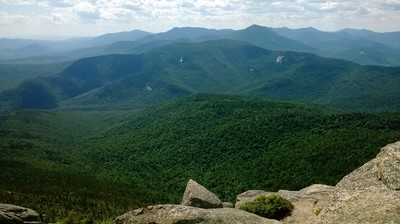|
I recently read The Rational Optimist (2010) by Matt Ridley. What Ridley is so optimistic about is capitalism, while he still finds plenty of reasons to be pessimistic about other trends, such as overregulation by big government.
A quote from page twenty-one sums up the theme of the book: “…ask how long you would have to work to earn an hour of reading light – say, the light of an 18-watt compact-fluorescent light bulb burning for an hour. Today it will have cost you less than half a second of your working time if you are on the average wage…in 1950…you would have had to work for eight seconds to get the same amount of light. Had you been using a kerosene lamp in the 1880s, you would have had to work for fifteen minutes to get the same amount of light. A tallow candle in the 1800s: over six hours’ work. And to get that much light from a sesame-oil lamp in Babylon in 1750 BC would have cost you more than fifty hours of work…” The first half of the book is history from the time our lineage split off from the great apes. Apes might sometimes trade when taught, but only by giving away something they do not value for something they do, not by giving away something of value for something more valuable. Even our closest relatives, the now-extinct Neanderthals, appear to have traded very little and only used materials from nearby, whereas humans from the same time period were passing goods from tribe to tribe along trade routes hundreds of miles long. According to Ricardo’s law of economics, so long as one can more efficiently trade one resource for another than make it oneself, trade will be advantageous, even if the ones harvesting the second resource cannot do so as efficiently. Thus, Portugal was happy to trade wine for English cloth, even though Portugal could make cloth more efficiently than England, because Portugal could make wine more efficiently still. Since trade that is free only occurs when all parties agree that they are better off after trading, free trade is always good. Over the centuries, growing markets made reforms possible that bettered everyone’s lives. Repeat business on an everyday basis conditioned people to become fairer, eroded the advantage of theft and drove down crime, conditioned people to learn to risk trusting strangers (raising our oxytocin levels), provided the excess wealth and free time to make charities and advocacy possible, provided the incentive to invent and produce new technologies, and made cities and agriculture possible. Ridley briefly covers some rival theories about the origins of trade, cities, and agriculture before rejecting them in favor of his own. Ridley also explains why for so many millennia progress was so slow. There were three enemies of progress: isolation, birthrates, and greed: Some societies, such as those in Australia, became fragmented into small units with little contact with each other. Having to rely on their own experts to make the technologies they needed, there was a gradual loss of knowledge over time as masters sometimes died before they had taken an apprentice. For most of human history, when there were surpluses of food and other resources, we simply made more humans. Family sizes increased until the land could no longer support the exploding population. Since the dawn of the industrial revolution, this is no longer true. Instead, living standards are rising while family sizes are getting smaller. The world population is expected to peak at nine billion before plateauing. Wherever there is wealth, there are thieves and con men. The most successful of thieves are governments which tax, rent-seek, and support monopolies. It is during times of centralized, unified government that living standards and technological progress stagnate. It is during times of geopolitical instability that these things flourish. Examples are given from Europe and China over the last thousand years. The bottom line is that capitalism is good and will continue to be good into the foreseeable future. It has already ended slavery and animal labor as we have learned to make use of alternative energy sources. It has already lifted most societies out of poverty. On the other hand, attempts to rein capitalism in over environmental concerns are misguided at best. The claim is made that organic food is worse for the environment because it requires more acreage to produce the same amount of useable crop; it is fertilizer that has saved us from a Malthusian fate. The claim is made that concentrating people in cities supported by specialized farms is a more efficient use of land than spreading people out the way we used to live. The claim is made that “renewables” are especially destructive, and that most “green” initiatives are very much anti-green. A quote from page 239 and 240 sums it up: “Wind turbines require five to ten times as much concrete and steel per watt as nuclear power plants…Hundreds of orang-utans are killed a year because they get in the way of oil-palm bio-fuel plantations…Not even Jonathan Swift would dare to write a satire in which politicians argued that – in a world where species are vanishing and more than a billion people are barely able to afford to eat – it would somehow be good for the planet to clear rainforests to grow palm oil, or give up food crop land to grow biofuels, solely so that people could burn fuel derived from carbohydrate rather than hydrocarbons in their cars, thus driving up the price of food for the poor. Ludicrous is too weak a word for this heinous crime…” Finally, Ridley wraps it up by reporting on the state of pessimism. Every generation since Plato has thought that the world was getting worse, yet polls show most people are optimistic about their own lives. This is similar to a phenomenon I have noticed among churched people: They are so keen on encouraging each other to have faith that our prayers will be answered on a personal level, yet are convinced in their interpretation of prophecy that the world is going to get worse and worse and worse until Jesus returns. I don’t understand it. The state of the world is merely the sum of states of the individuals living in it. Another line of thought I found interesting was when Ridley was discussing how ideas beget ideas when inventing new technologies. It might not merely be a function of need and the limitations of physics. There might be some sort of metaphysical structure to “ideaspace” that guides technological development. That’s something to wonder about.
0 Comments
Leave a Reply. |
AuthorMy name is Dan. I am an author, artist, explorer, and contemplator of subjects large and small. Archives
February 2023
Categories
All
|



 RSS Feed
RSS Feed